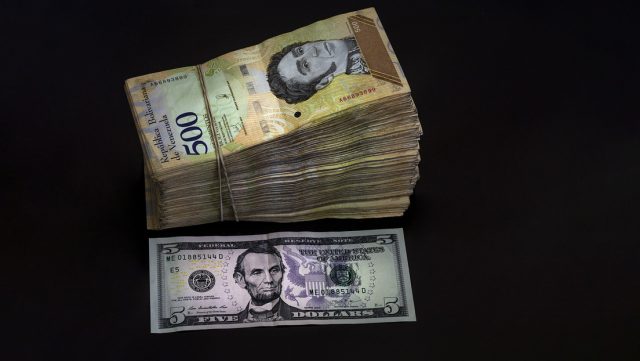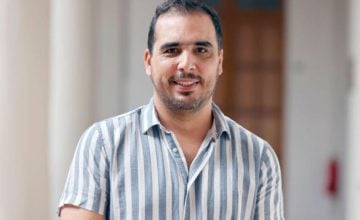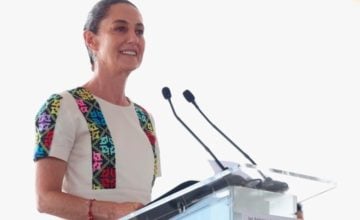Last week, the reform of the Tax Law on Large Financial Transactions (LIGTF) came into force in Venezuela, which seeks to encourage the use of the local currency, the bolivar, and discourage operations in international currencies and crypto assets within the internal market. .
In accordance with the provisions of the Venezuelan State, the law —which charges 3% of transactions with foreign currencies and crypto assets, except the Venezuelan cryptocurrency Petro—, was launched on March 28, in the midst of a climate of doubts due to the lack of information on its implementation.
On the streets, some formal businesses and large fast food chains, for example, still do not charge the tax, while others have taken spontaneous measures such as not accepting foreign currency anymore and charging only in bolivars, a scenario that, for a part of the population, still seems strange, considering the wide acceptance of the dollar in the country.
In other commercial spaces, including some informal ones that do not pay taxes, they began to speculate on prices and increased the cost of the merchandise they already had for sale by at least one more dollar, arguing that this would cover the 3% that the law imposes on transactions with foreign currencies.
The uncertainty, which still persists, has generated that in the places that have raised the cost of their products on their own, buyers who pay in bolivars are forced to also assume the increase, despite the fact that the regulations were created to discourage , mainly, the use of the dollar and privilege the national currency.
Given the climate of misinformation and ignorance of the regulations, RT spoke with the economist and president of the Permanent Commission of Economy, Finance and National Development of the National Assembly, Jesús Faría, who indicated that the tax will only have to be paid by people who make transactions in foreign currency and, if they wish, they can avoid it, if they exchange the foreign currency for bolivars.
Position the bolivar as the currency of Venezuela
Deputy Faría explained that the fundamental purpose of the law, which «is not a magic wand or a panacea», seeks to «reposition the bolivar as the national currency», since it was spontaneously displaced by the dollar, during the years of hyperinflation.
The parliamentarian stressed that although the use of foreign currencies gave the battered local economy a break, today the Venezuelan State is «obliged» to reverse the de facto dollarization process in Venezuela to return the predominance to the bolívar.
The reasons for the regulation to come into force are diverse. The first one is that the local currency is the bolivar and not the dollar, explained Faría. «A dollarized economy is far from guaranteeing its development, the power of sovereignty over fundamental instruments of economic policy such as monetary, fiscal and exchange policies is lost, because it is managed from outside and thus, the country cannot develop».
The law – explained the deputy – comes at a time when the country’s economy is recovering: the lowest levels of inflation in recent years have been recorded and there is political stability. In his opinion, this allows for the use of the dollar, which was exempt from charges and even with privileges compared to the bolivar, which does have tariffs on transactions, in addition to the Value Added Tax (VAT) that is currently 16%.
“This is a matter of tax justice because the operations in dollars were not charged and they should pay a tax. In Venezuela there are two currencies with the largest circulation, the Bolivar and the dollar. Operations with bolivars pay tax and those made with dollars did not pay it. What is being established is that they begin to contribute», explains the economist.
Another important reason – he points out – is that Venezuela is «in the midst of a war declared by the US government», through the commercial and financial blockade, which is why he indicates that it would be «unusual, reckless and crazy» for the State to allow the most widely circulated currency to be precisely that of the country that is attacking Venezuela. «It is a matter that has no sense to it and that is why we want to position the bolivar», he added.
Misinformation about the law
The parliamentarian asserted that since the Legislative Branch was discussing the norm, a political sector with «large economic interests» has tried to generate matrices of opinion against the tax, saying that it would have a negative impact on the lives of Venezuelans. «It’s the opposite, the contribution to the treasury serves for the development of the country, to improve social investment, health, public services, infrastructure, salaries», he pointed out.
Along these lines, he added: “It is a lie that everyone has to cancel the tax. There has been a campaign against the law that has a political and economic background, which comes from the actors who carry out large transactions and transfers in dollars. Those are the least interested in making their contribution to the treasury and want to disrupt the stabilization process of our economy. and reactivation of the productive apparatus».
These «economic and political groups» – according to Faría – intend to generate distrust and uncertainty «by putting ideas on the table that are not true, such as that the population is going to be squeezed to pay taxes and none of that has to do with the reality. It is a great battle and that is why we must position the law in better terms, even assuming, in self-criticism, that there has not been enough information to explain the scope, purposes and content of the law, which we are willing to communicate with the greatest transparency».
Faría asserts that there are “many operations” that are exempt from the charge. “Foreign remittances are exempt, as are all purchases and payments made in the informal economy. Popular markets and small establishments that are formal are also exempt, since the regulations seek to punish the large collectors».
On the other hand, the economist explains that «there are multiple options» to avoid paying the tax. For example, if a person is going to buy in «large establishments and does not want to pay for it, he will simply have to exchange his foreign currency for bolivars». He can also “open a foreign currency bank account, deposit his dollars, exchange them for bolívares and pay with his debit card. Only the bolívar should be privileged when paying» a product o service.
The reform to the LIGTF was approved by the Venezuelan parliament on February 3, 2022, and was carried out based on the regulations that had been in force since 2015, which due to the economic context at that time did not contemplate any tax on foreign currency transactions. and much less to the use of cryptocurrencies.












